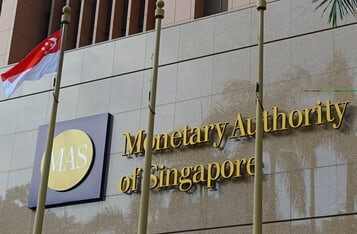Search Results for "regulatory approvals"
Nasdaq to Launch Digital Asset Custody Services
Nasdaq is preparing to launch its custody services for digital assets by the end of Q2 2022, starting with Bitcoin and Ether. The exchange has applied for a limited-purpose trust company charter from the New York Department of Financial Services to oversee the new business and aims to eventually build a broad suite of services for its digital assets division. Its entry into the crypto market could potentially boost institutional investor confidence and pave the way for more traditional financial institutions to offer similar services.
Facebook’s Libra Encouraged to Exclude the Chinese Yuan Being Tied to the Stablecoin
While Facebook is facing regulatory approvals for its Libra project, Facebook told US senators that the initial group of currencies that Libra will be likely backed by the US dollar, Euro, Yen, British Pound, and the Singapore dollar.
ING Warns Facebook’s Ties With Banks May Be Breached Due To Libra Regulatory Concerns
Ralph Hamers, the CEO of ING, warned that Facebook's relationships with banks will probably be cut off due to its inability to address Libra regulatory issues, especially the money-laundering fears.
New South Wales Treasury Proposes Flexible Regulatory Reform For Blockchain
Australia’s New South Wales is proposing a flexible regulatory reform to accommodate the thriving blockchain and cryptocurrency ecosystem
Ripple Expands Global Regulatory Team and Joins Blockchain Association
Ripple, the San Francisco-based blockchain startup, just announced its inclusion of four new members into its global regulatory team in Washington D.C.
G20 Lays Regulatory Foundation to Accept Digital Payments by November Summit
G20 officials have announced that they will begin the preliminary regulatory groundwork for the group to accept digital payments.
Traversing Through the Crypto Regulatory Landscape in 2019
Blockchain and crypto regulation has seen its ups and downs in 2019, with endless regulators evolving along with the realm of the new technology development and use cases. From countries that view blockchain as a threat to learning to embrace the technology; let’s have a look at some of the major regulatory changes in 2019.
FINRA Ends Regulatory Unclarity By Awarding Harbor with Crypto Broker-Dealer License
The Financial Industry Regulatory Authority (FINRA) awarded Harbor Square Investments a broker-dealer license. Harbor Square Investments is a subsidiary of tokenized securities platform-Harbor.
Nigeria Eyes New Regulatory Framework to Boost Crypto and Blockchain Adoption
Nigeria’s Ministry of Finance is collaborating with the nation’s capital market watchdog, to provide a new regulatory environment for the blockchain and crypto space.
The Cayman Islands Creates Regulatory Framework to Attract Virtual Asset Business
The Ministry of Financial Services of the Cayman Islands announced that it is building regulatory frameworks for individuals and entities that offer digital assets in business.
Singapore's Central Bank Paves the Way for Regulatory Oversight of Cryptocurrency Derivatives Trading
The Monetary Authority of Singapore (MAS) has revealed regulatory plans to permit the trading of cryptocurrency derivatives on select platforms. This oversight strategy is being fronted because investors are considerably favoring these products.
Exclusive: Is Belarus the Heaven for Tokenized Exchanges?
In this interview with George Paliani, CBDO of Currency.com, we explored the fundamentals of the tokenization of assets and its underlying regulatory requirements. George explained that Currency.com isn’t just an ordinary exchange, where it is a platform with cryptocurrencies and traditional financial products such as commodities, indices, stocks, bonds.











